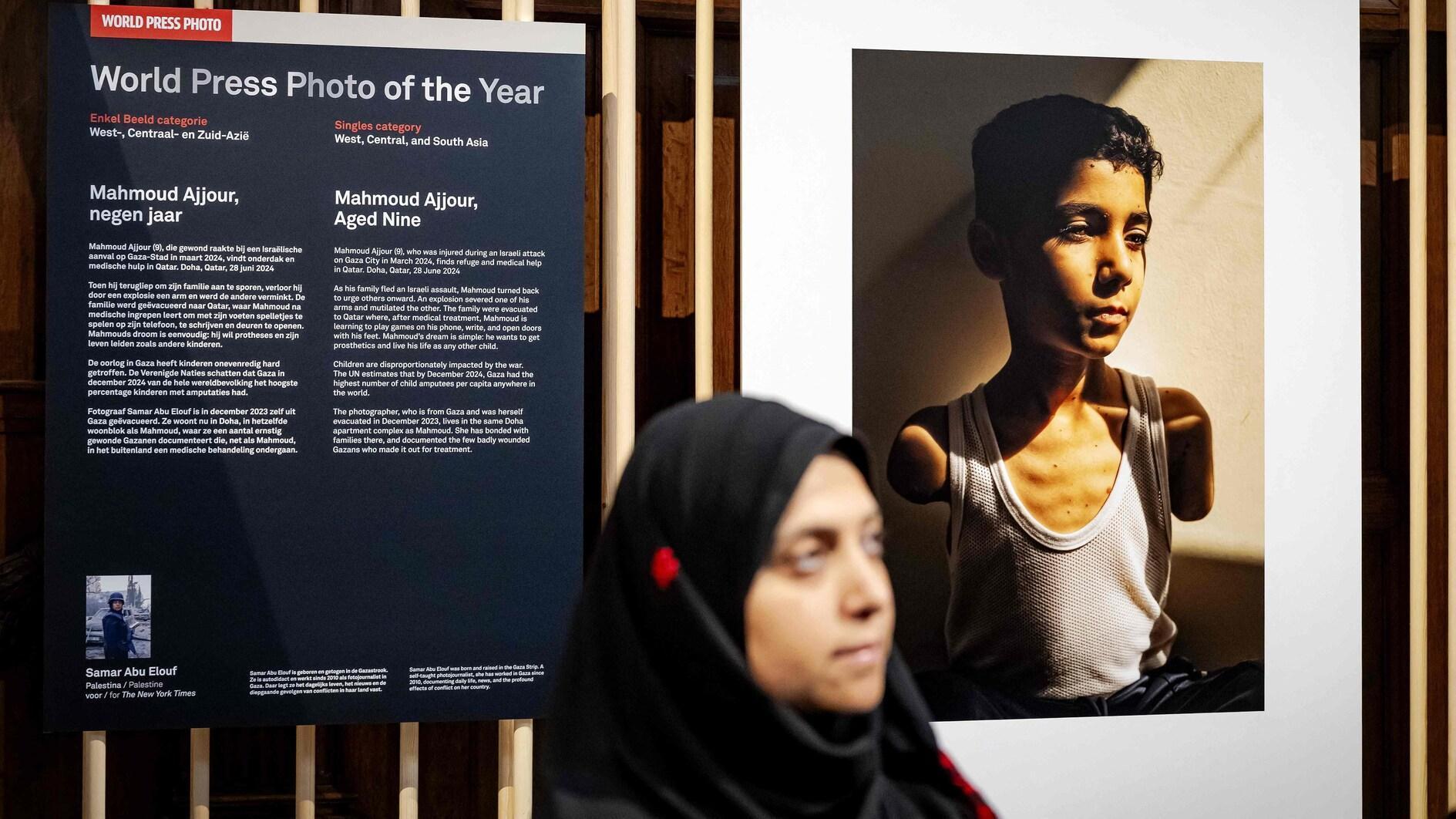
World Press Photo of 2025 award winner Samar Abu Elouf poses next to her winning photograph depicting a nine-year-old Palestinian boy who lost both arms during an Israeli attack on Gaza City at the Nieuwe Kerk in Amsterdam on April 17, 2025
Around 500,000 Palestinians have been displaced in Gaza since Israel resumed its military offensive in the Palestinian territory following the collapse of a temporary truce with Hamas, according to the U.N. humanitarian office, OCHA.
"Humanitarian partners estimate that since March 18, approximately half a million people have been newly displaced—or displaced yet again," said Stephanie Tremblay, spokesperson for U.N. Secretary-General Antonio Guterres.
Her remarks came as Gaza’s civil defense agency on Thursday reported that at least 37 people were killed in a wave of Israeli airstrikes, most of them in makeshift camps sheltering displaced civilians, as Israel pressed ahead with its intensifying assault on the enclave.
The Israeli military has declared roughly 30 percent of the Gaza Strip an “operational security zone,” restricting Palestinian access amid expanded ground operations.
The army said in a statement it now maintains “full operational control” over several key areas and strategic corridors within the territory. These zones encompass areas from which residents have been forcibly expelled and are now barred from returning.
OCHA also warned that nearly the entire population of Gaza —over 2 million people— is now dependent on just 1 million prepared meals distributed daily by charity-run kitchens supported by humanitarian organizations.
Meanwhile, Israel’s security establishment has raised the alarm over dwindling aid supplies in Gaza, warning that food stocks may only last another month, according to public broadcaster Kan.
The looming shortage prompted Defense Minister Israel Katz to announce on April 16 that humanitarian aid would soon resume when a civilian mechanism is established via private firms — an announcement he quickly walked back amid backlash from coalition partners, according to the sources.
Israeli officials argued that restricting aid remains a key pressure tactic to compel Hamas into a hostage deal. However, top military commanders are now exploring ways to allow aid deliveries that would bypass Hamas. Discussions are reportedly underway with civilian organizations that could serve as intermediaries in future aid operations.
The Israeli military has also floated the idea of establishing “stationary aid centers” within Gaza.